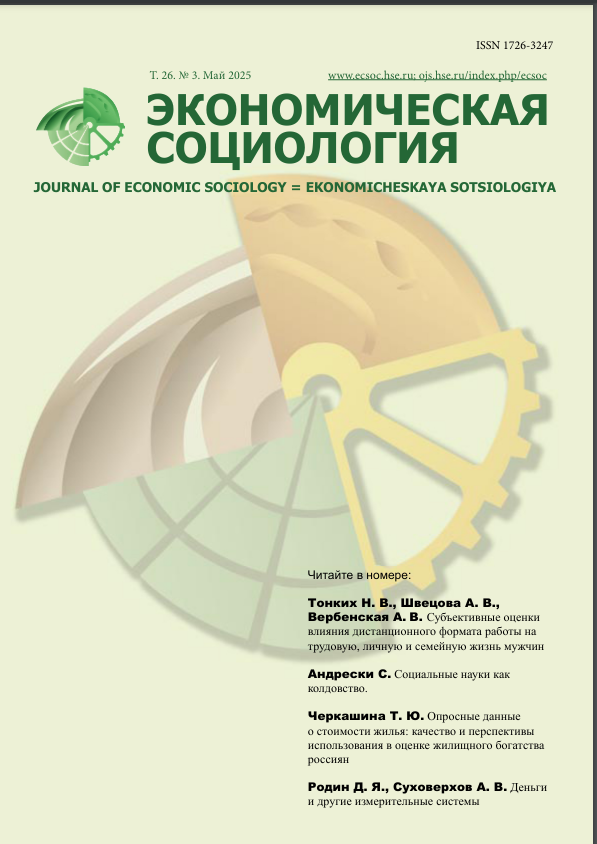Survey Data on House Prices: Response Rate and Conditions for Answers
Abstract
Differentiation by wealth—the value of accumulated property owned—is one of the dimensions of socio-economic inequality alongside income. Inequality indicators are calculated using data on the market value of property, which allows for both the determination of total wealth and the calculation of differentiation coefficients. It is common practice to collect such data through household surveys, although these inherently contain errors typical of survey data. This article presents the first stage of a study—an assessment of the quality of data on housing wealth from the Russian Longitudinal Monitoring Survey (RLMS) and the All-Russian Household Survey on Consumer Finances. It also identifies the conditions under which respondents are most likely to provide answers about the value of their housing. The emphasis is on analyzing the level and factors affecting the availability of responses to questions about the value of residential real estate, which is included among the data accuracy indicators recommended by the OECD for survey data on wealth. The response rate to the question about the market price of one’s own occupied housing in the latest waves of the RLMS is 72–75%, while in the All-Russian Household Survey on Consumer Finances it is 82–87%. Respondents are more likely to provide information about occupied housing than about additional properties. In these respects, Russian respondents differ little from those in comparable international surveys. Among the factors influencing whether respondents provide answers about the market price of their housing, the most significant are financial competence and “financial secrecy”—the willingness to disclose financial information to interviewers. The likelihood of non-response increases among older respondents living in metropolitan regions, large “millionaire” cities, or conversely, in rural areas. Excluding these observations from analysis would lead to underestimation of both expensive metropolitan housing and cheaper rural housing. Judging by the dynamics of response rates over the past 20 years, Russians have become better oriented regarding developments in the housing market.













